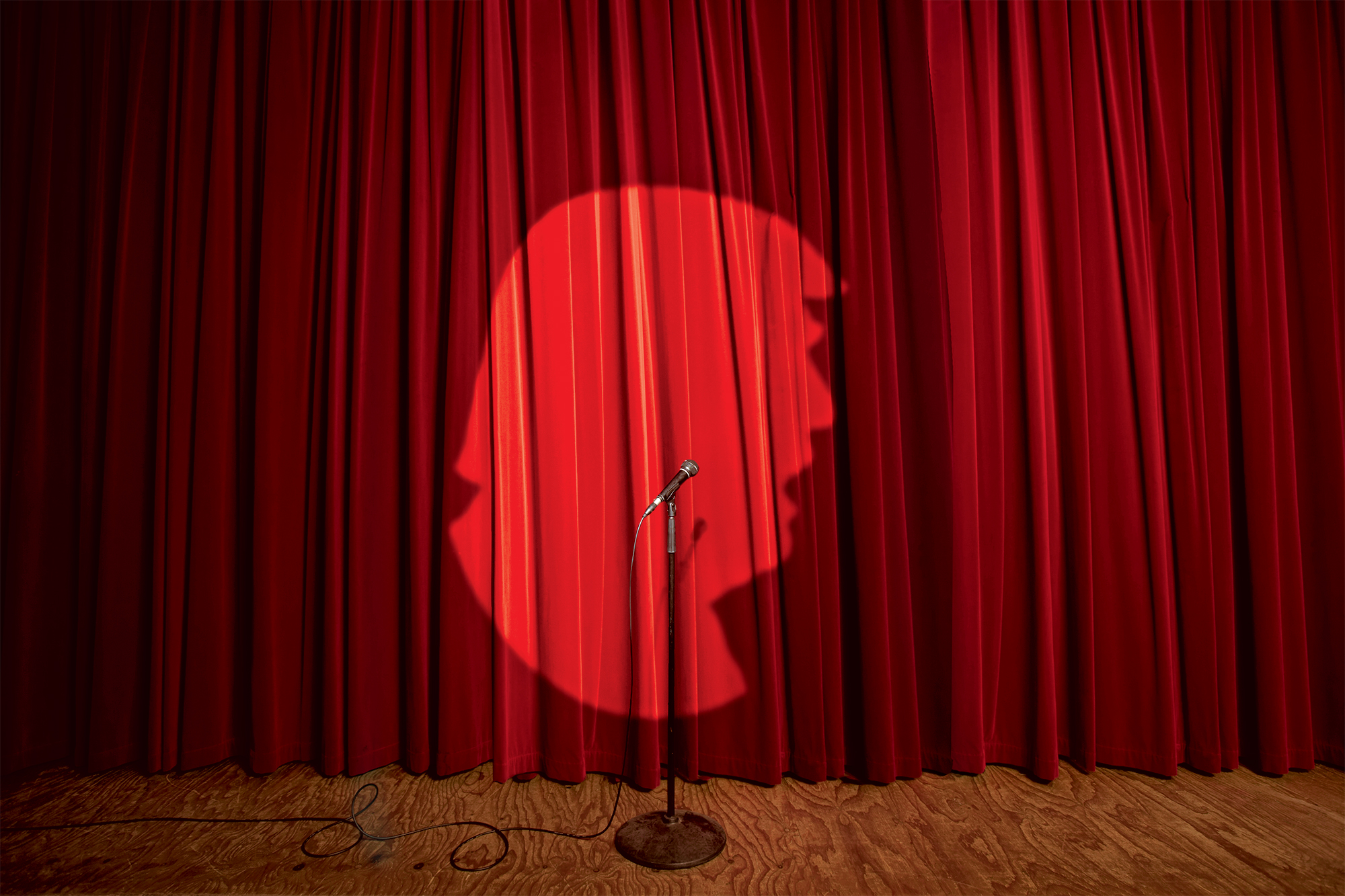It’s prom season in Washington—not for high-school and college students but for politicians and journalists. The annual Gridiron Club dinner kicked things off on March 3, the Washington Press Club Foundation had its event on March 6, and the biggest of them all, the White House Correspondents’ Association dinner, is April 28. I’ve been to at least a few dozen of these over the years and even emceed one in 2000, complete with now extremely dated jokes (“Is Rice-A-Roni the San Francisco treat?” I asked Bay Area congresswoman Nancy Pelosi). There’s a certain frisson to them: seeing people you know, meeting people you don’t, feeling like you’re not in a dying industry.
But there’s always been an awkward side to these affairs. Because journalists’ sources are often their guests, the dinners can seem to confirm the worst suspicions of outsiders—that there’s collusion. That’s not true, but appearances matter.
What has always made the events work—kind of—is the humor. Elected officials get up in front of journalists and, rather than promote themselves and their positions, tell self-deprecating jokes. As long as they’re all making lighthearted fun of themselves, participants come off as humble rather than corrupt.
When the President shows up at these gatherings, the stakes suddenly get much higher. Calvin Coolidge was the first commander in chief to speak at a WHCA dinner, but his long-winded remarks about the separation of powers were so boring that future Presidents were urged just to give a quick thank-you, according to a forthcoming book by George Condon. Then in the early ’60s, John F. Kennedy started bringing some wit to the proceedings, making fun of ritzy Palm Beach, where the Kennedys vacationed, among other subjects.
That kind of self-effacing comedy, more droll than knee-slapping, soon became the standard. It served Nancy Reagan well when she poked fun at her high-spending ways by singing a parody of “Second Hand Rose” at the Gridiron dinner in 1982. Bill Clinton drew laughs in 2000 with a video that depicted him as a has-been, riding a bicycle through the empty marble hallways of the Old Executive Office Building.
Pols making fun of themselves is a win-win. It reassures reporters that this is an off-duty affair—a brief, collegial time-out before both sides return to the scrum. At the same time, it humanizes politicians in front of their toughest audience.
As with so much else, Trump has now upended this tradition. When the President stopped by this year’s Gridiron Club affair, his speech was decidedly uncomfortable. At first, he seemed to be playing along, opening with a few fun-at-your-own-expense one-liners. “Nobody does self-deprecating humor better than I do,” he boasted, and also noted that Jared Kushner, his legally imperiled son-in-law, was late because “he couldn’t get through security.” Not bad!
But as Trump continued—speaking for 35 minutes instead of the customary ten—his material got uglier. He made fun of Representative Maxine Waters’s IQ and dubbed former Vice President Joseph Biden “Sleepy Joe,” promising he’d “kick his ass.” As veteran journalist Howard Fineman tweeted: “Sentiment in the room was a #DC mix of fake geniality & pure dread.”
It’s not that Trump isn’t funny. At times, he can almost seem like a cross between Andy Kaufman, the is-he-truly-insane-or-just-joking comedian from the ’70s, and Ralph Kramden, the ’50s-era Jackie Gleason character from TV’s The Honeymooners.
At rallies, Trump’s free-associative style can lead to some sharp moments, as when, at a July 2016 event in Cincinnati, a mosquito flitted around him. “I don’t want mosquitoes around me,” Trump boomed in a deliberately exaggerated New York accent. “I don’t like those mosquitoes. I never did. Speaking of mosquitoes—hello, Hillary.” Not exactly hilarious, but more quick-witted than your average demagogue.
You may not find this kind of stuff funny, but it’s undeniably different from what Washington is used to—antithetical to the we’re-all-friends-after-5 image that Beltway denizens like to hold of themselves. And that was the real message of Trump’s performance: He just isn’t interested in playing along. It’s part of what makes his supporters love him. But his brand of mean humor feels out of place in DC—Andrew Dice Clay rather than JFK.
Whether this kind of insult comedy will survive in DC after the 45th President is gone remains to be seen. My guess: probably not. After all, the old way—the faux-humble self-deprecation—also comports with a desire to be liked, which is what politicians not named Trump crave.
This article appeared in the April 2018 issue of Washingtonian.


















